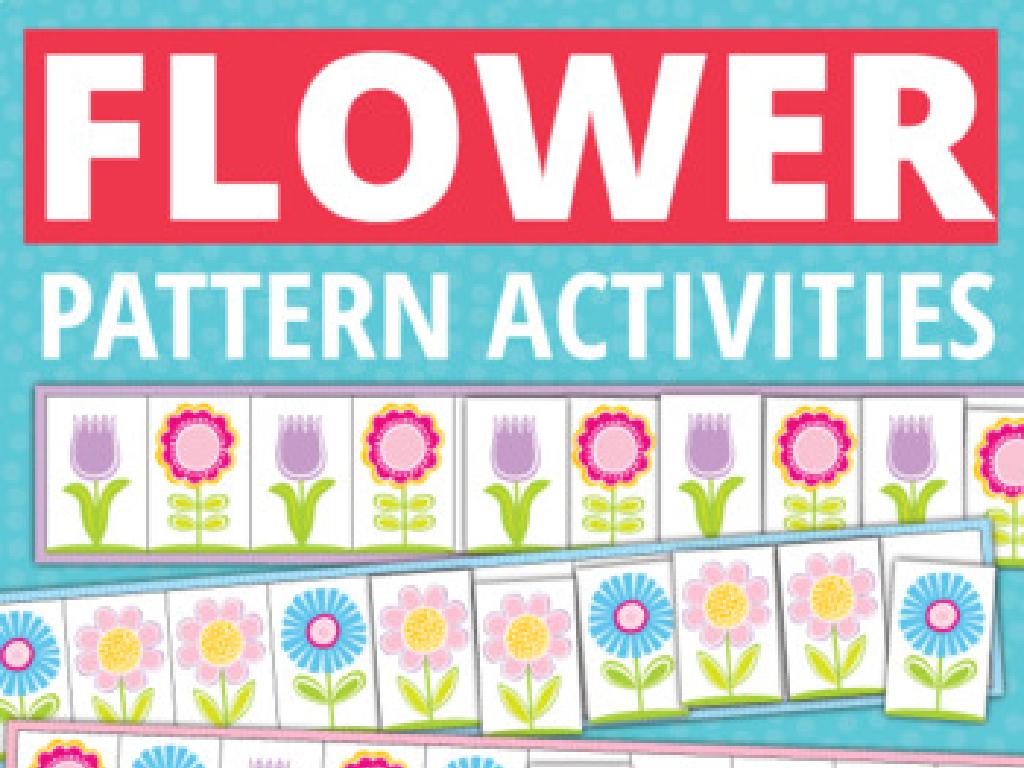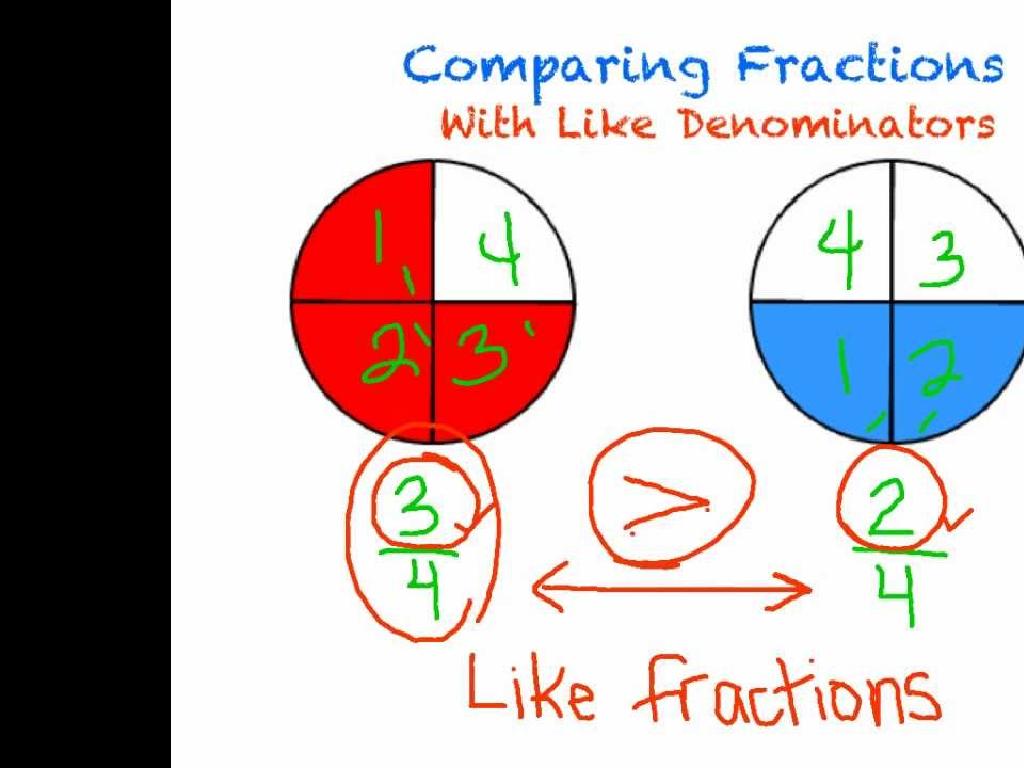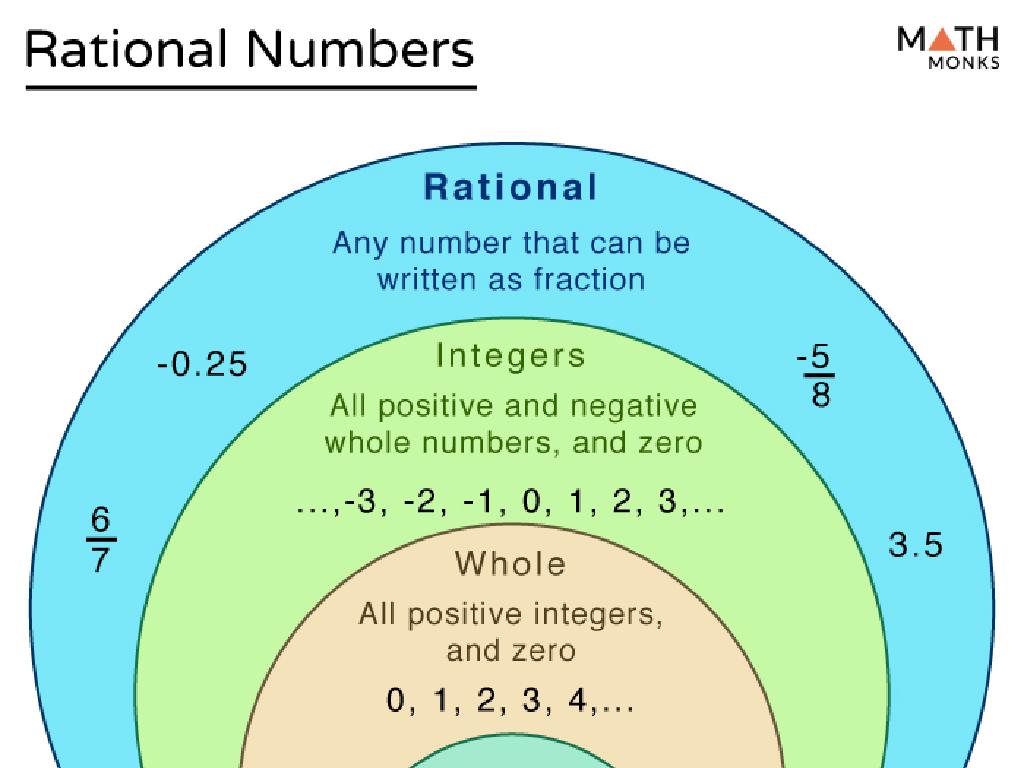Choose The Synonym
Subject: Language arts
Grade: Sixth grade
Topic: Synonyms And Antonyms
Please LOG IN to download the presentation. Access is available to registered users only.
View More Content
Choosing the Right Synonym
– What are synonyms?
– Synonyms are words with similar meanings, like ‘happy’ and ‘joyful’.
– Synonyms enhance writing
– Using different synonyms makes our stories and essays more interesting.
– Practice finding synonyms
– Look for words you know and think of others with a similar meaning.
– Use synonyms effectively
– Learn to choose words that fit the context and add variety to your writing.
|
This slide introduces the concept of synonyms and emphasizes their importance in writing. Begin by defining synonyms and providing clear examples. Explain how using synonyms can make writing more vivid and engaging. Encourage students to practice identifying synonyms for words they commonly use, and discuss how to select the most appropriate synonym based on the context of the sentence or story. Provide exercises where students replace overused words with synonyms to enhance their writing. The goal is to help students expand their vocabulary and improve their writing skills by understanding and applying synonyms effectively.
Exploring Synonyms
– Define synonyms
– Words with the same or similar meanings, e.g., ‘happy’ and ‘joyful’.
– Examples of synonyms
– ‘Big’, ‘large’, ‘huge’ all describe size but with slight differences.
– Synonyms have varied strengths
– ‘Happy’, ‘content’, ‘elated’ show increasing levels of happiness.
– Practice with synonyms
|
This slide introduces the concept of synonyms to the students. Begin with the definition, explaining that synonyms are words that have the same or nearly the same meaning as another word. Provide clear examples to illustrate the point. Discuss how synonyms can express different intensities of emotion or characteristics, which is important for choosing the most appropriate word in writing. Encourage students to think of synonyms as tools for making their writing more interesting and precise. As an activity, have students come up with their own lists of synonyms for common words and discuss the nuances in meaning among them.
Synonyms in Action: Enhancing Sentences
– Understanding synonyms’ impact
– Synonyms can alter a sentence’s tone or meaning.
– Selecting context-appropriate synonyms
– The right synonym can make a sentence clearer or more interesting.
– Activity: Synonym matching game
– Match words with similar meanings in a fun class game.
– Enhance writing with synonyms
|
This slide introduces the concept of synonyms and their importance in writing. Explain how synonyms can change the nuance of a sentence and make it more precise or engaging. Provide examples of sentences with interchangeable synonyms to illustrate the subtle differences in meaning. For the activity, prepare a list of words and their synonyms for students to match, which will help reinforce their understanding of the concept. Encourage students to think about the context when choosing synonyms and to consider how word choice can affect the reader’s interpretation. The activity should be interactive and fun, promoting learning through play.
Shades of Meaning: Synonyms’ Nuances
– Synonyms have different intensities
– ‘Happy’ vs. ‘Ecstatic’: Not the same
– ‘Happy’ is pleased; ‘Ecstatic’ is overjoyed
– Context influences synonym choice
– Words fit differently in sentences
– Practice with varied synonym pairs
– Examples: ‘Angry’ vs. ‘Furious’, ‘Cold’ vs. ‘Freezing’
|
This slide introduces the concept that synonyms, while similar, have varying degrees of intensity and can convey different levels of emotion or meaning. ‘Happy’ and ‘Ecatic’ are both positive emotions, but ‘Ecstatic’ implies a stronger, more overwhelming sense of joy than ‘Happy’. It’s crucial for students to understand that choosing the right synonym depends on the context and the specific nuance they wish to express. Encourage students to think about how even small changes in word choice can significantly alter the meaning of a sentence. Provide additional synonym pairs for practice, and ask students to create sentences that show the difference in intensity between the words.
Practice Time: Synonym Hunt
– Identify synonyms within sentences
– Find words with similar meanings in a sentence
– Choose the best synonym for context
– Select a synonym that fits the sentence meaning
– Group activity: Synonym Word Web
– Collaborate to connect words with their synonyms
– Share and discuss your word webs
– Present your group’s web and explain your choices
|
This slide is designed for an interactive class activity focused on synonyms. Start by explaining that synonyms are words with similar meanings and can often be used interchangeably. Have students identify synonyms within given sentences, then challenge them to choose the most appropriate synonym based on the sentence’s context. For the group activity, students will create a ‘Synonym Word Web’ where they connect words to their synonyms, visually displaying the relationships. This activity encourages teamwork and deepens their understanding of word relationships. After the activity, facilitate a discussion where each group shares their word web and explains their thought process. This will help reinforce the concept and allow for peer learning.
Class Activity: Synonym Charades
– Learn Synonym Charades rules
– Team up and act out words
– Work with classmates to perform and interpret acts
– Guess the synonyms
– Use body language and gestures to convey the meaning
– Discuss the role of synonyms
– Reflect on how different words with similar meanings can aid communication
|
This interactive class activity is designed to help students understand and apply the concept of synonyms in a fun and engaging way. Divide the class into small teams and explain the rules of Synonym Charades, where one student acts out a word without speaking, and their teammates try to guess the word. Then, they must also guess a synonym of that word. After the activity, lead a discussion on how using synonyms can help in communicating effectively, especially when the original word doesn’t come to mind. This will help students see the practical use of synonyms in everyday language. Possible words for charades: fast (quick), happy (joyful), hard (difficult), and smart (intelligent).
Conclusion: Mastering Synonyms & Homework Task
– Recap on choosing synonyms
– Context shapes synonym choice
– Words can have similar meanings but aren’t always interchangeable.
– Homework: Craft a short story
– Use the synonyms learned to write an engaging story.
– Include 10 different synonyms
– Ensure the synonyms fit naturally within your story’s context.
|
As we wrap up our lesson on synonyms, remember that context is key in selecting the right synonym; they are not always interchangeable. For homework, students are tasked with writing a short story that incorporates at least 10 different synonyms learned today. This will help them understand the nuances of word choice and encourage them to think creatively about language use. Encourage students to share their stories in the next class for peer review, which will foster a collaborative learning environment and enhance their understanding of synonyms in context.






